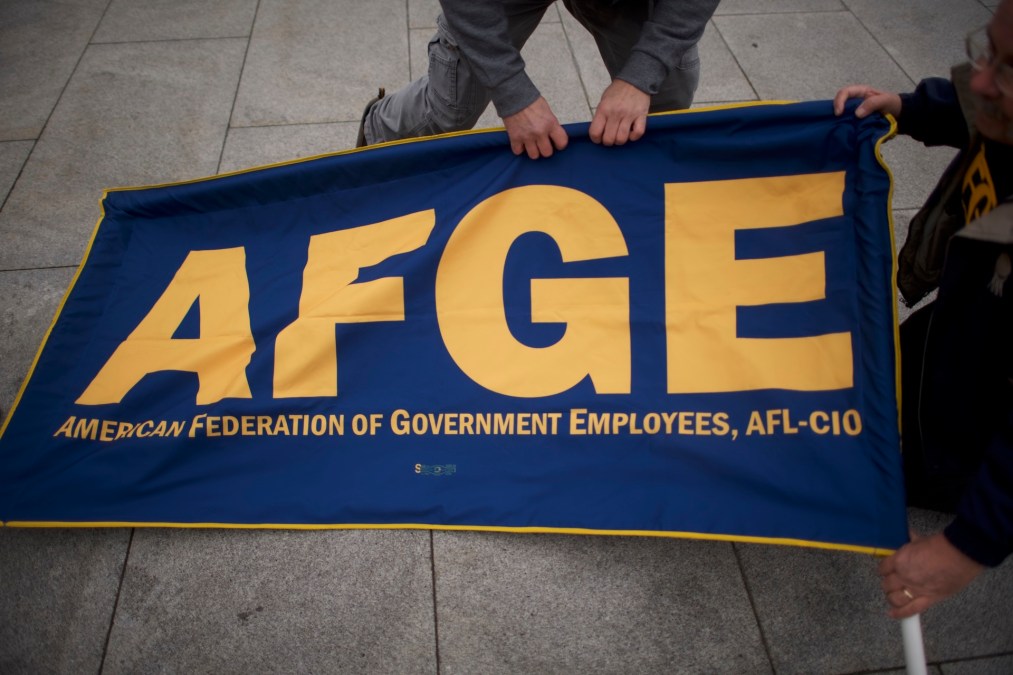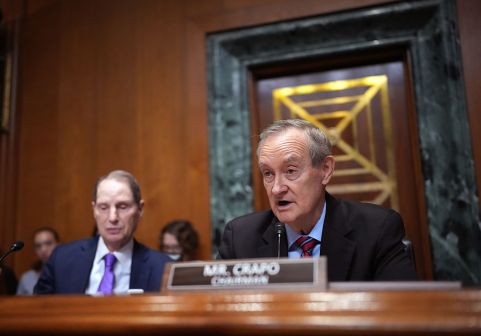Federal worker advocates file legal challenges to DOGE, Schedule F

Federal worker advocates are among those challenging the Trump administration’s efforts to establish a Department of Government Efficiency organization and remove employment protections for certain civil service workers.
In a lawsuit filed Monday, Public Citizen, the American Federation of Government Employees and the State Democracy Defenders Fund argue the establishment of a so-called DOGE runs afoul of the Federal Advisory Committee Act, a statute governing the establishment of government advisory panels.
In a separate lawsuit also filed Monday, the National Treasury Employees Union challenged the new president’s efforts to reinstate Schedule F, which would create a new category of the same name in the federal government’s “excepted service” and make it easier to fire the civil service employees that it encompasses. That lawsuit alleges that the action is contrary to what Congress intended because it attempts to remove employees’ right to due process and violates Office of Personnel Management regulations.
The lawsuits, which were both filed in the U.S. District Court for the District of Columbia, came amid a flurry of legal activity to halt some of the actions President Donald Trump took immediately after his inauguration Monday and underscore the tensions between the new president and the federal workforce. Both lawsuits were first reported by Bloomberg Law.
Among his first actions, Trump established the DOGE by renaming the U.S. Digital Service to the U.S. DOGE Service and establishing a temporary service organization within the USDS that will be focussed on the DOGE agenda. That structure was a slight departure from Trump’s original announcement about the DOGE, which said it would be an outside government organization, but plaintiffs say that doesn’t change the lawsuit.
In a statement provided to FedScoop, Robert Weissman, co-president of Public Citizen, said the structure of the DOGE in Trump’s order wasn’t meaningfully different from what had been previously reported.
“Apart from transforming the ‘USDS,’ it mostly codified elements of DOGE that had been reported or indicated — that it would be part of the White House complex, that it would deploy staff to agencies, etc.,” Weissman said in the written statement. “Based on what has been reported about the many people reported working outside government for DOGE and the nature of the recommendations that DOGE will make, DOGE appears to be a [Federal Advisory Committee Act] committee.”
In the complaint, the plaintiffs allege that the DOGE began before the inauguration and Trump had not, as of the filing, acknowledged that the DOGE would operate as an advisory committee subject to FACA requirements, including transparency measures, filing a charter before the group meets and having a fairly balanced membership.
“Operating without complying with FACA, DOGE has already begun developing recommendations and influencing decision-making in the new administration, even though its membership lacks the fair balance required by FACA and its meetings and records are not open to public inspection in real time,” the lawsuit said.
The plaintiffs asked the court to enjoin Trump and the Office of Management and Budget from using the DOGE and enjoin the group from meeting unless it complies with FACA requirements. They also asked the court to order the defendants to comply with specific parts of that statute, including filing a charter and complying with transparency requirements.
Meanwhile, the lawsuit over Schedule F focuses on legislation Congress has enacted regarding federal employment, including establishing “most federal government jobs be in the merit-based, competitive service” and “most federal employees have due process rights if their agency employer wants to remove them from employment.”
Trump’s executive order, the union argued, isn’t what Congress intended because it “attempts to divest federal employees of these due process rights.”
The Monday order, reinstating Trump’s previous establishment of his original Schedule F with some slight changes, including renaming it the Schedule Policy/Career. That order is aimed at reclassifying certain employees who are part of the federal civilian workforce and “policy-influencing positions” as at-will employees, making them easier to dismiss.
NTEU National President Doreen Greenwald said in a Tuesday statement that the order “is a dangerous step backward to a political spoils system that Congress expressly rejected 142 years ago, which is why we are suing to have the order declared unlawful.”
In addition to declaring the order unlawful, the union also asked the court to enjoin Trump from enforcing it and enjoin other government officials from complying with it.
Spokespeople for the White House and transition didn’t immediately respond to a request for comment on the challenges.






